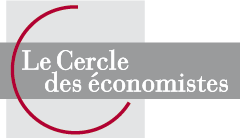State of Economic Emergency
“We have tried, with many shortcomings, to articulate a short-term economic policy and long-term requirements, what one might call a necessary economic strategy.”
The members of Le Cercle des économistes (1)
The situation we are experiencing today is particularly important, between social fears for the coming months and economic ambition for the years to come. Yes, we are convinced that, on the one hand, we are likely to face a major economic and social shock in the very near future, to which we must respond with urgent decisions, and on the other hand, that we must relaunch the debate with ambition on the major issues that structure the evolution of the world. The debate must be based on the evaluation of current public policies, which is essential to reach a consensus on the state of the country’s economy and to succeed in defining the points of agreement and disagreement.
The burden of the short term
In this situation, a real economic strategy is needed for the next five years. Yet we are faced with a lack of clear vision. The first priority is to analyse and propose what should be done on the two nodal points, monetary and fiscal policies, which are more closely linked than ever.
Two options for dealing with inflation
How to deal with inflation is at the very heart of the economic strategy one wishes to pursue. It is important to remember that the central bank is independent and must conduct the monetary policy it deems appropriate. In our view, it has two options when dealing with inflation: to give priority to fighting inflation or to maintaining growth. This choice determines the room for manoeuvre available to fiscal policy, as well as the investments we can make and the means of financing them.
The first strategy is a restrictive monetary policy, advocated by central banks, to contain inflation, but which runs the risk of a recession. This policy implies that new spending will be financed through higher taxes, given the rise in interest rates that this option entails.
The second strategy is an accommodating monetary policy, as has been the case for several years, to prioritise growth but runs the risk of runaway inflation. It suggests that new spending will be financed by debt.
The right economic strategy
We believe that the economic strategy to be adopted should be threefold.
Firstly, priority must be given to maintaining the purchasing power of the most modest (income up to 1.2 times the minimum wage). To do this, it would seem wise to group together the aids within a single voucher for a maximum of 12 months, in order to avoid the risk of creating an inflationary spiral.
Secondly, public expenditure must be reduced by reorganising and digitalising the public administration on the one hand, and by reforming the pension system on the other, which would contribute to increasing the employment rate. This reorganisation of the functioning of the state and the increase in the employment rate will give credibility to the state’s action to make investments.
Thirdly, we need to make substantial long-term investments, which we estimate at 100 billion euros. These massive investments, particularly in the fields of education, research, innovation and ecological transition, must contribute to long-term growth and enable us to succeed in the transformations of the world.
The short-term economic and social situation is very delicate. Let us never forget that crises accelerate poverty phenomena. The urgency of the situation requires a national response. The next twelve months will be decisive in limiting any economic and social tension. All the proposals we are making presuppose financing arrangements.
Seven decisions to make







Successfully transform the world
Urgency must in no way be a brake on or contradict the ambition we have to succeed in transforming the world, which takes place over a long period. For the long term, the issue is indeed the debate, which was very rare during the last election campaigns.
We are convinced that the debate must exist, in particular on these five major subjects: ecological transition, industrial and technological sovereignty, redistribution strategies, youth and training, and the intergenerational social pact.
Cinq grand sujets de débat





(1) With the exception of Agnès Bénassy-Quéré, Laurence Boone, Benoît Coeuré and Claire Waysand, whose institutional status obliges them to observe reserve.












